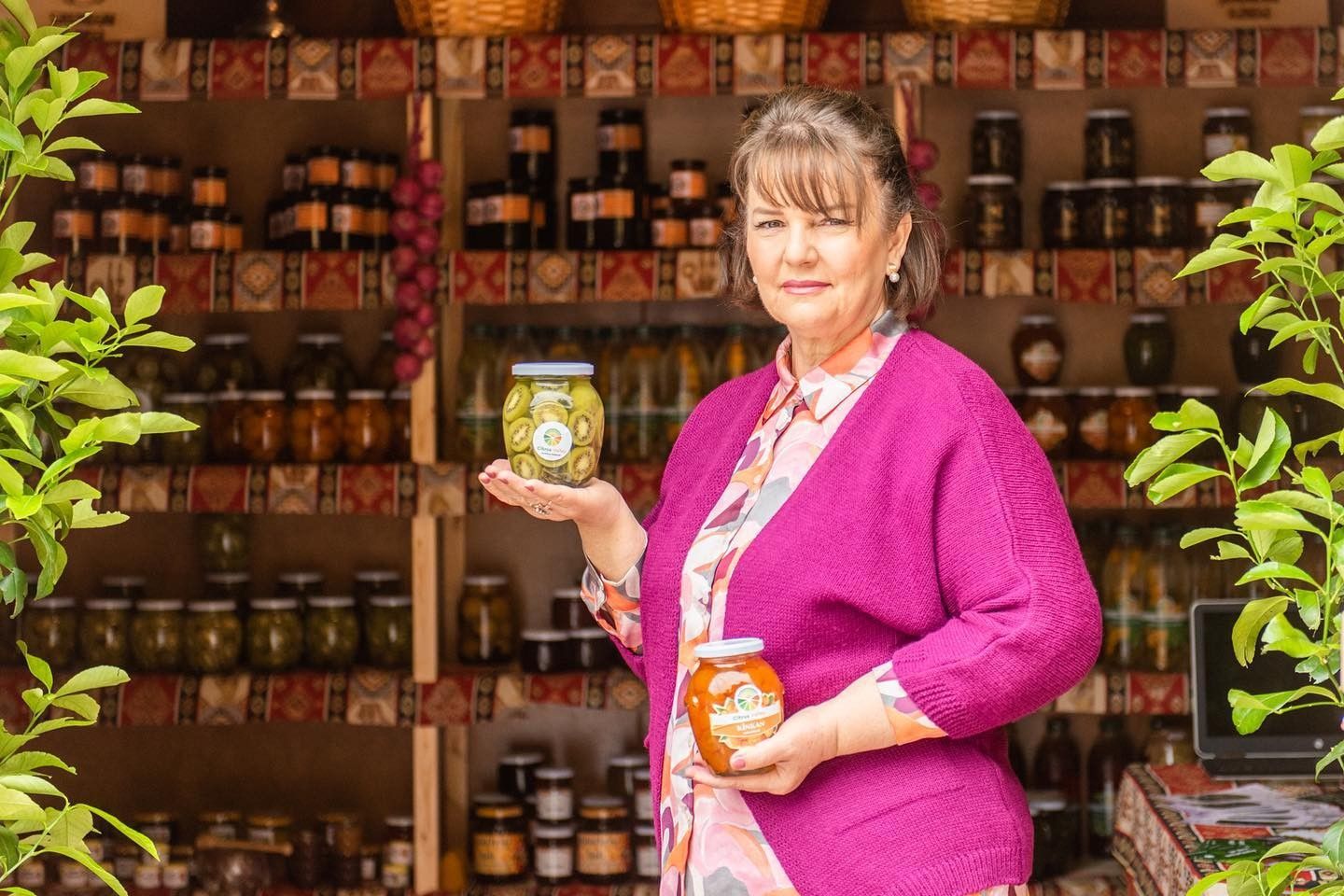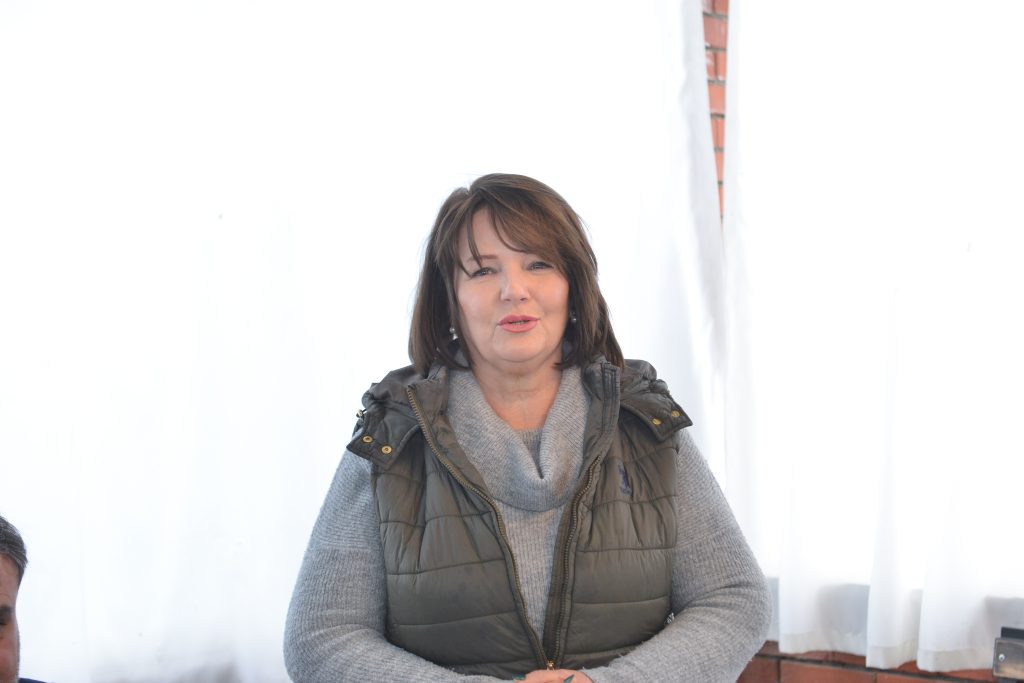
A teacher’s orchard
Raftara Shukurova, a beneficiary of several EU-funded projects and the owner of the Citrus Valley horticulture farm, believes that teaching has a lot in common with gardening…
I had worked as a primary school teacher for many years. You need to have a lot of patience when you teach kids the alphabet and writing skills. A school is like an orchard, with the latter having trees as a substitute for pupils. If you toil and moil, then trees will blossom and subsequently, yield fruits…
When I chose to be an entrepreneur, my 32-years of teaching experience came in handy. Any sapling planted at the orchard reminded me of my pupils, so I realized I would care for, and more precisely, cherish them. Otherwise, they would neither blossom nor fruit.
Every morning I live through the best moments in life when I open the gates to Citrus Valley, known as ‘the teacher’s orchard’ by locals. Every blossoming tree makes me happy, and the ambiance of this gorgeous orchard tells me that my persistence and hard work have paid off.
There is another feature a school and an orchard have in common – pupils can be naughty and disobedient at school, while Mother Nature replaces that behavior at orchards, taking us by surprise. The snowfall we experienced last winter was so heavy that our feijoa trees (Acca sellowiana, a small evergreen tree related to the guava) were left with broken branches. Nevertheless, you have to endure the whims of Mother Nature and remain patient. Asked how I overcame all these difficulties, I don’t have my answer confined to patience and hard work though, for I derive my strength from being a creative person. I have drawn pictures or used rice seeds to build up portraits since I had been aware of what I was. I still remember how I spent hours painting the sea when I was a child. By the way, you also need to believe in what you are doing. Commitment, patience, forbearance, and perseverance are the pillars of success. Besides, an entrepreneur must take risks to win achievements. If you fear, you will fall into despair.
I would say, being a woman is another characteristic that makes me strong. As a matter of fact, it is not easy to be a woman, for you have to wear several hats, including domestic chores and care of the family, in addition to paid employment or running a business. Owning this garden is another test to withstand since you have to provide solutions for manual labour requirements, as well as social responsibility. You can see the results of manual labor for yourself. However, social responsibility is often implicit, for you need to understand and deal with the implications of being in charge of your employees and value them and their work beyond applause, thereby making them happy and satisfied. In our farm, 90 percent of the workers are women. During the season, their number reaches 40. Last year, we packed 100,000 bottles, and this year we plan to pack 200,000 bottles of juice.
I started a farming business 16 years ago when I was still a teacher and didn’t have a vehicle to drive to the orchard. After the class, I needed to hire a taxi or get on the bus to reach the farming area. I didn’t tell the others what I was involved in since I was afraid of being misunderstood by the community – a woman, a daughter-in-law of a notable family working on the farm. At that time I kept reminding myself of a catchphrase from the movie Boyuk Dayag [Great Support, an Azerbaijani movie featuring an urban woman bringing changes to a rural community and breaking stereotypes to fight for her rights to establish herself ]: “You are a woman, what do you have to do outside the house, working on the farmland?” Then I left the school, still hiding my gardening business from the others. People in our community thought my family had moved to Baku, the capital city. I managed to ‘hide’ for almost a decade and emerged only six years ago. Looking back on those years, I am a bit disappointed, since I could have gained more knowledge, attended more training courses, got engaged in more projects, and expanded my network by communicating with more people. I went against the meaning of my name – after all, Raftara means kind treatment and good communication. Indeed, I don’t have anything to complain about regarding the lack of communication after I joined the EU-funded project Promoting community-based agritourism as a rural regeneration strategy.
Joining the EU projects, especially the “EU for Lankaran” project, has significantly broadened my worldview. As part of this project, I went on two training trips abroad. Our first trip was to Italy, where we spent a week exploring Sicily with farmers from Lankaran, Astara, and Jalilabad, visiting agro-tourism sites. The most impressive facility I saw in Sicily was a biofactory that breeds insects that eat harmful pests. Having such a biofactory would be very beneficial for our work. The factory that produces methane gas from the waste of orange, olive, and poultry processing was also very interesting. One of the things we learned in Sicily was how to graft citrus trees at a higher elevation. Typically, we graft citrus plants at a lower height. The EU projects have been very helpful in developing our skills. After returning from Sicily, we organized a large meeting with farmers in our region to share our experiences with them.
Our second trip was to Croatia, where we spent a week in Zagreb and Zadar visiting processing facilities. We learned about the processing and packaging of apples, hot peppers, and carrots, gaining a wealth of experience. What impressed me the most in Europe was the mechanization of labour. This is why, as the next step of the “EU for Lankaran” project, we decided to focus on two issues: mechanization of labour and processing equipment.
We had a significant need for tractors and towing equipment. To address this, a budget of 100,000 euros has been allocated to purchase tractors and relevant towing equipment—such as sprayers, branch cutters, and soil loosening machines—which will be delivered to us in November this year.
Today, Citrus Valley is quite well-known in Azerbaijan. The tandoor (bakery) and café we built with the help of the European Union have made Citrus Valley very attractive to tourists. Last year, our number of tourists was 20,000, and this year that figure is even higher. I believe our collaboration with the European Union will continue, and I hope it will support us in promoting our biggest dream, the “Citrus Valley” brand, to the world.
